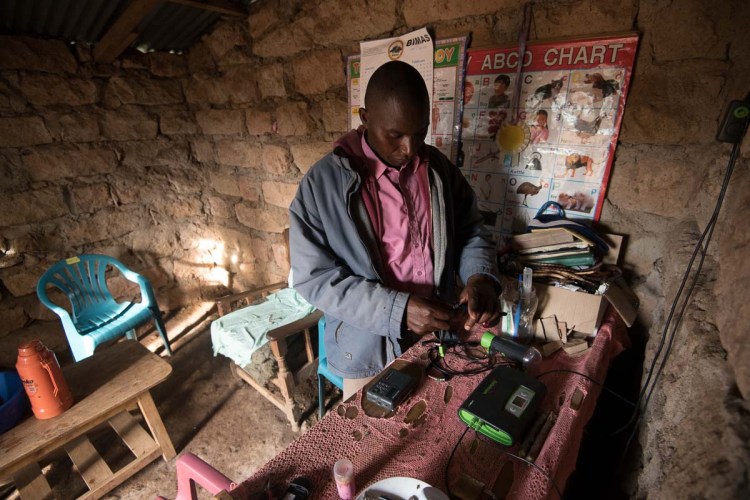Solar energy is the key to getting power to many parts of Africa, but it is expensive to implement and often difficult for individuals to purchase. So global payments firm Mastercard has teamed up with solar energy company M-KOPA Solar, banks, and mobile network operators to enable payments and commerce for people who don’t have access to banks. The alliance will enable consumers to pay for solar energy as they use it.
About 625 million people in sub-Saharan African and 1.2 billion people worldwide have little or no access to electricity.
“We view access to energy as a basic human right,” said Kiki Del Valle, senior vice president of commerce at Mastercard, in an interview with VentureBeat. “Mastercard is trying to tackle the problem by bringing more modernized, reliable energy to more people. It’s part of our inclusion initiative, as energy access plays a critical role in enabling health, gender equality, economic opportunity, security, biological sustainability, and a lot of other key measures of human development. That is why we are interested in solar.”
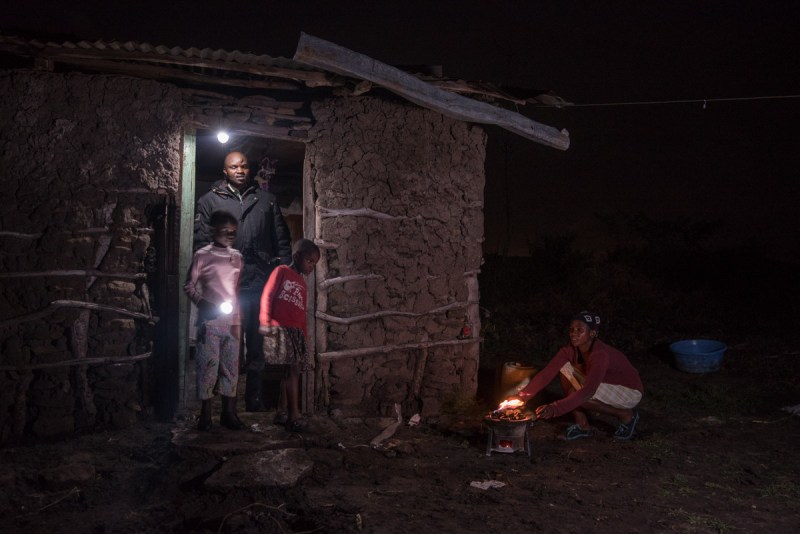
Above: Mastercard has teamed up with M-KOPA Solar to light up Africa.
Mastercard unveiled its plans for a new kind of digital payment at the Mobile World Congress event in Barcelona. The company and its partners will enable M-KOPA to extend its pay-as-you-go program without worrying about how customers will make payments.
June 5th: The AI Audit in NYC
Join us next week in NYC to engage with top executive leaders, delving into strategies for auditing AI models to ensure fairness, optimal performance, and ethical compliance across diverse organizations. Secure your attendance for this exclusive invite-only event.
The program is an easy way to bring basic utilities to remote and rural areas. But without easy payment solutions, it is hard to implement and scale. Mastercard is using its Masterpass QR codes, an open and interoperable technology that provides people with any type of mobile phone the ability to safely make purchases without using cash or a plastic card.
“Picture today’s model, with women or men walking kilometers to go to a store,” Del Valle said. “They buy a kerosene jug. They pay cash. Then they walk home. They use it for lighting or cooking or whatever. That is their experience today.”
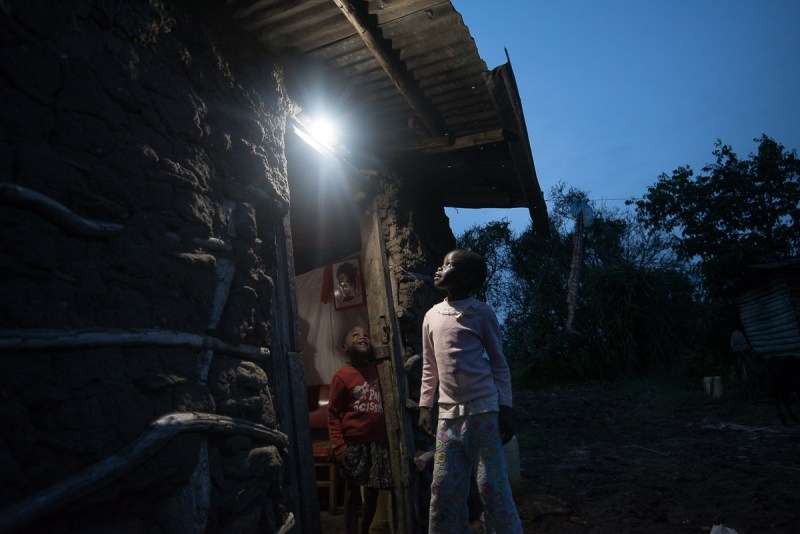
Above: Mastercard believes that prosperity starts with access to energy in Africa.
“What we’re actually doing, as a QR merchant — M-KOPA will be able to access payments to millions of consumers. We embed a QR code within the device itself, minimizing the cost of the hardware for that device and making it easier for consumers to make a payment,” Del Valle said. “The consumer opens a telco app. They use a mobile money pop-up account. They will scan the code. They will enter the device ID. We find a device ID to the merchant. I type in the device ID into the application. I type in the amount of funding I can take. We created an application programming interface (API) to bind the device ID to the merchant ID. So an alert is sent to M-KOPA. Once the payment is made, they can send credits to the device. That device can then be used for the next couple of days.”
The solar panel itself has a device ID.
“It is now a smart device,” Del Valle said. “That device ID of the solar panel and merchant ID helps facilitate the payment. I only use the mobile phone to scan the QR code and pay. They can set this up easily, and it uses existing infrastructure. There is no lower limit on how much money can be spent on transactions.”
Mastercard is rolling the pilot test out in Uganda later this year, and it will expand to other markets sometime this year.
In Africa, Masterpass QR is currently available in Ghana, Kenya, Nigeria, Rwanda, Tanzania, and Uganda. This network will help M-KOPA scale and grow beyond its existing markets without requiring technology investments.
Many sub-Saharan Africans rely on bio and fossil fuels, such as wood, charcoal, and kerosene. Solar is an independent way for people to power homes and businesses but is unaffordable for many, as it requires a large, one-time investment. The actual cost of purchasing and installing M-KOPA solar equipment is close to $200.
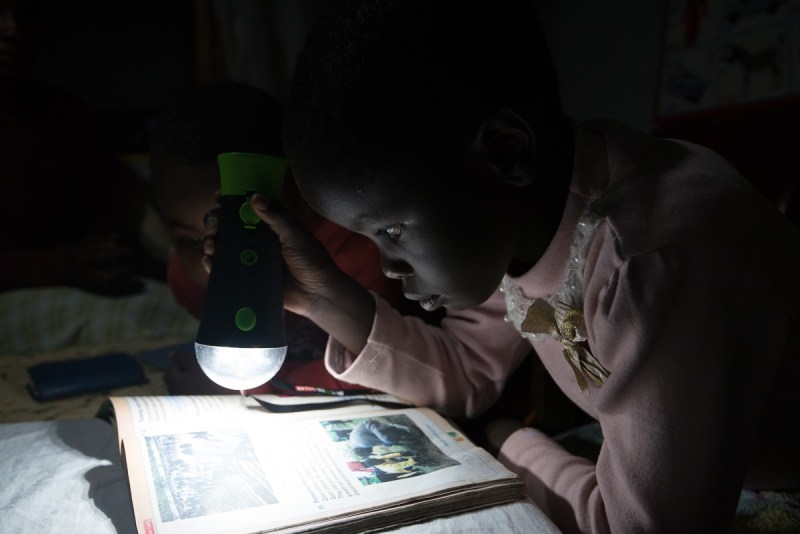
Above: Mastercard will let consumers pay cents per day for access to solar power.
With the pay-as- you-go program, M-KOPA customers will be able to access an interest-free installment plan with a small down payment of $35 and daily payments as low as 5 cents a day. M-KOPA customers will be able to make daily payments or top up their accounts by either scanning a Quick Response (QR) code or by entering the merchant ID associated with the QR code into their feature phone.
“We want to provide a convenient and inexpensive way to power Africa, and our partnership with Mastercard provides the roadway for more solar services and infrastructure across the continent,” said Nick Hughes, cofounder and chief product officer at M-KOPA Solar, in a statement. ”QR technology will make payments easier and ubiquitous and will make it easier for us to scale easily and quickly across multiple markets, instead of worrying about individually integrating with different payment systems.”
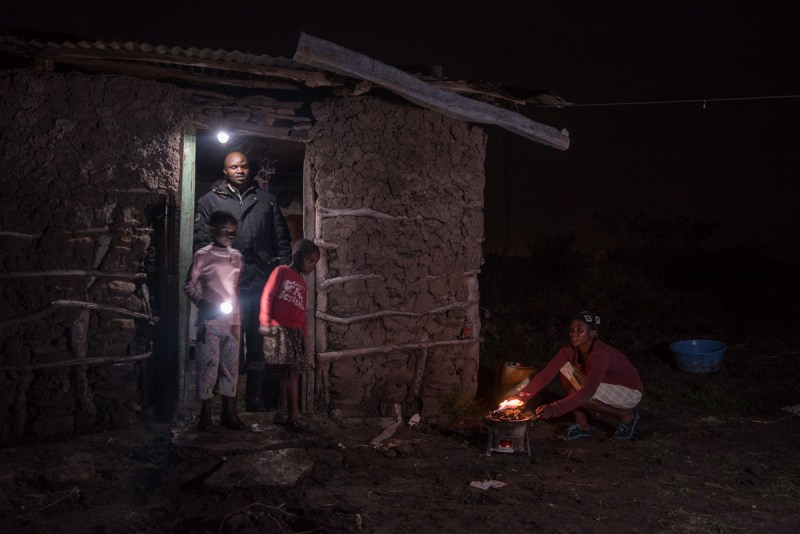
Above: Mastercard is powering payments for solar energy in Africa.
After doing the pilot in Uganda, Mastercard and M-KOPA plan to extend the program across East Africa. Mastercard will also be extended this model to other utility providers in developing markets across the world. Del Valle said that new kinds of services could emerge with the same kind of infrastructure as the solar example.
“As a consumer, I can prepay my energy consumption for my next two days, and the financial system is based on that,” Del Valle said. “It moves always from the post-billing system, and it is not only going to be limited to energy.
“Now we can move into other areas, enabling new forms of payments,” Del Valle said. “We are looking for other opportunities where technology can bring incremental value to people. We can bring greater control to consumers so they can pay in whatever amount they want.”
